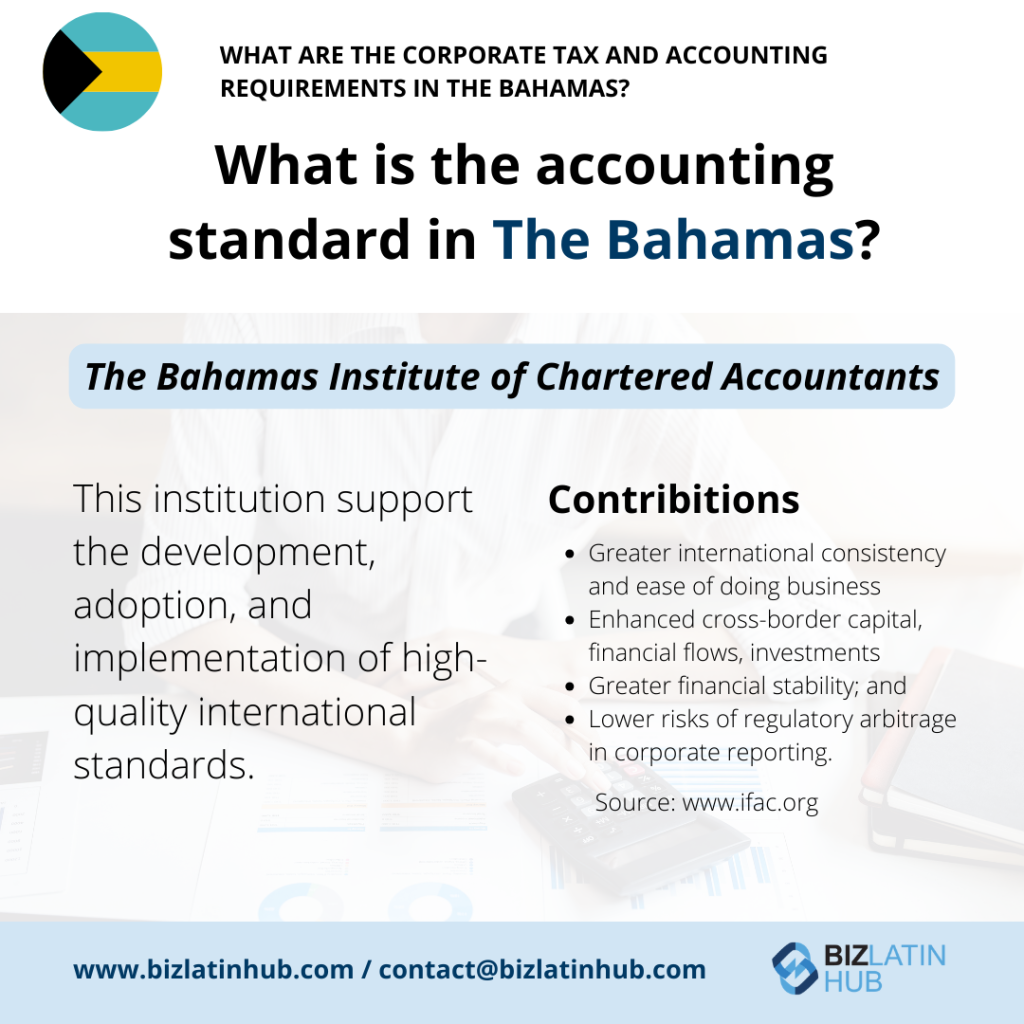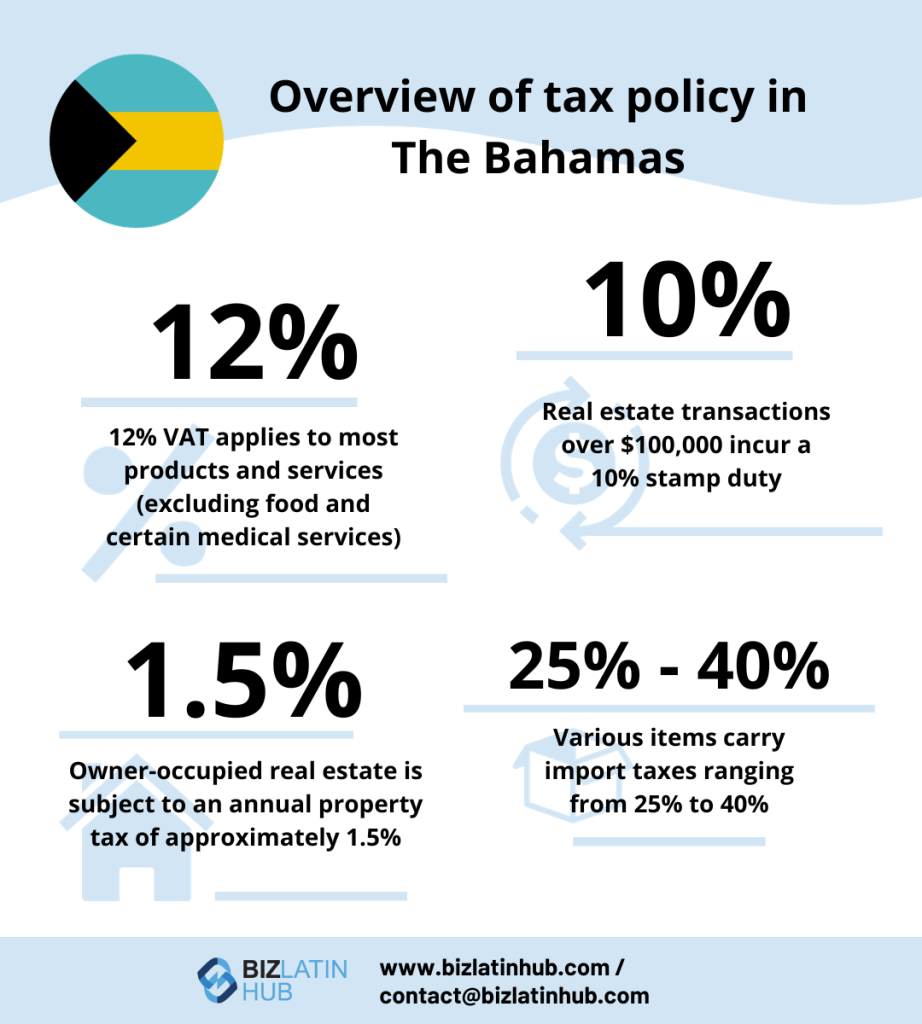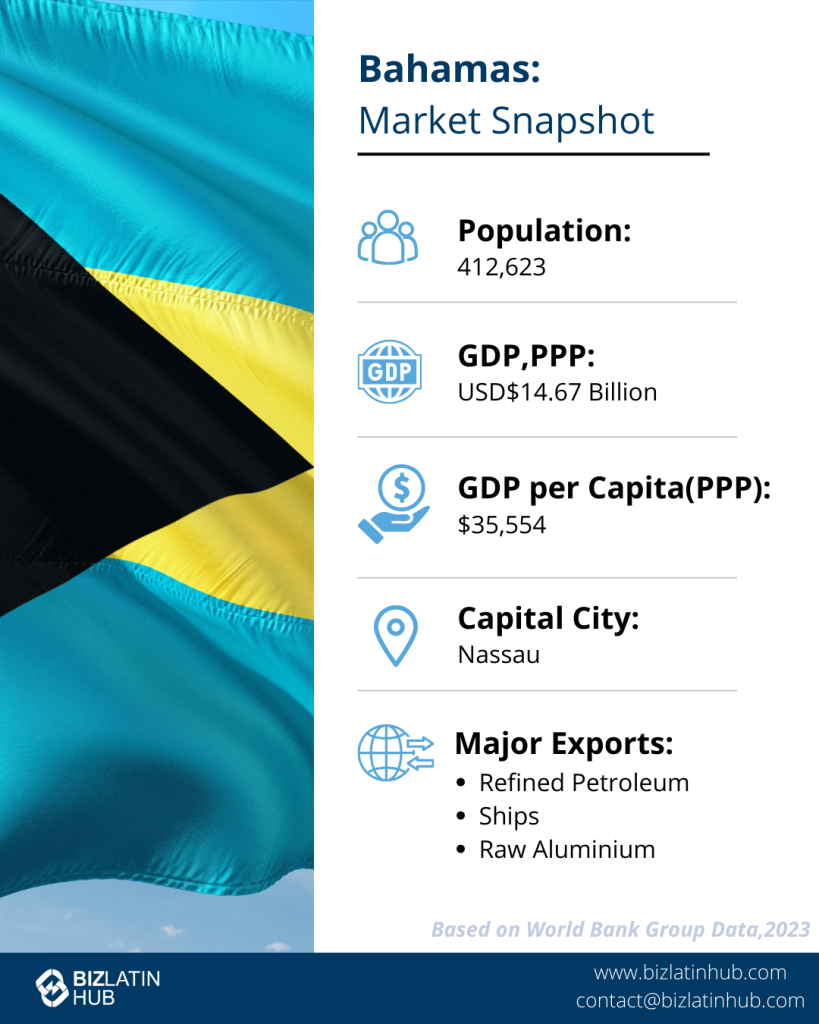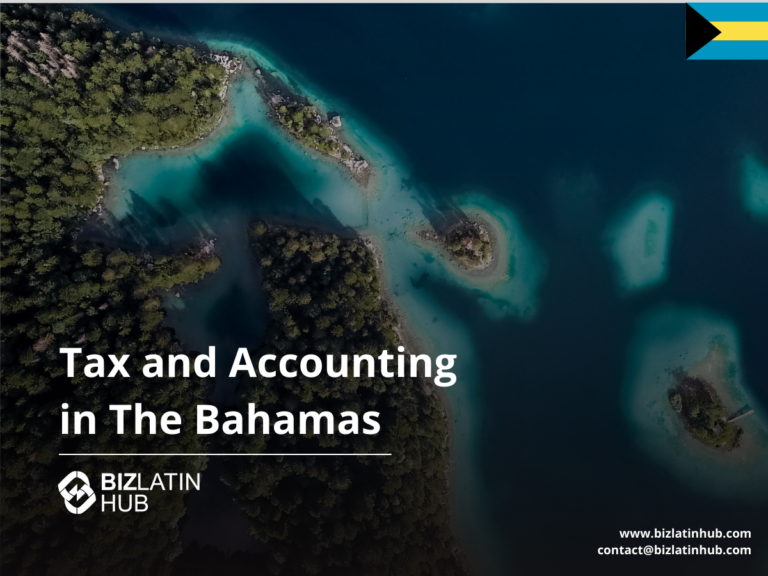Situated close to key markets in North America, The Bahamas presents an inviting environment for global investors. Its business-friendly atmosphere and strong financial services sector create an advantageous landscape for those considering company formation in The Bahamas. Before you start your business, It is crucial to understand the tax and accounting requirements in The Bahamas. Despite its fame for being a tax haven, foreign investors need to be aware of the taxation laws and regulations.
Key Takeaways Tax and Accounting Requirements in The Bahamas
| What Are The Accounting Standards in The Bahamas? | The Bahamas Institute of Chartered Accountants, the regulatory authority overseeing the accounting profession in the Bahamas, allows companies without public accountability in the country to opt for IFRS for SMEs. Alternatively, these companies have the choice to adopt full IFRSs. |
| What Is The Corporate Tax Rate in The Bahamas? | The Bahamas does not have corporate tax. |
| What Is The Bahamian Value Added Tax Rate? | VAT is paid at the rate of 12% with exceptions for some essential goods. |
| Dividend Tax Rate in The Bahamas | The Bahamas does not have a withholding tax. |
What is the tax policy in The Bahamas?
The Bahamas has a favorable tax environment with income, dividends, capital gains, wealth, and inheritance being tax-free. While a 12% VAT applies to most products and services, excluding food and certain medical services, real estate transactions over USD$100,000 incur a 10% stamp duty. Additionally, owner-occupied real estate is subject to an annual property tax of approximately 1.5%, and various items carry import taxes ranging from 25% to 40%.
Tax and accounting requirements in The Bahamas: Key local tax rates
Understanding the tax and accounting requirements in The Bahamas is vital when entering this market. Here are the tax rates you need to know.

Income Tax: There is no income tax in The Bahamas.
Corporate Tax: The Bahamas does not have corporate tax.
Value-added Tax: VAT is paid at the rate of 12%.
Capital Gains Tax: There is no capital gains tax.
Withholding Tax: The Bahamas does not have a withholding tax.
Social Security: Both employers and employees contribute to social security on employment remuneration in the Bahamas, with a standard rate of 9.8%. The employee pays 3.9%, while the employer covers 5.9%. It’s worth noting that these contributions do not apply to earnings surpassing BSD 710 per week.
Property Tax: Taxes are assessed based on the market value of the property, with rates varying according to the type and value of the property in the Bahamas. Stamp duty is applied to the annual rent of BAHAMA immovable properties, and additional fees are imposed on various immovable property transactions and certain other transactions.
International tax treaties
The Bahamas has established 22 Tax Information Exchange Agreements (TIEAs) with various jurisdictions, including Australia, Argentina, Belgium, Great Britain, Greenland, Denmark, Iceland, Spain, Canada, China, Mexico, Monaco, Netherlands, New Zealand, Norway, San Marino, USA, Faroe Islands, Finland, France, Sweden, and Japan.

FAQ regarding tax and accounting requirements in The Bahamas
Using our experience, we’ve pinpointed common questions and worries our clients often have when dealing with accounting and taxes in The Bahamas.

The Bahamas does not have a direct corporate tax.
Businesses in the Bahamas are not subject to corporate tax, withholding tax, payroll tax, or transfer tax.
The revenue collection authority in The Bahamas is known as The Department of Inland Revenue.
The Bahamas Institute of Chartered Accountants, the regulatory authority overseeing the accounting profession in the Bahamas, allows companies without public accountability in the country to opt for IFRS for SMEs. Alternatively, these companies have the choice to adopt full IFRSs.
BICA, the Bahamas Institute of Chartered Accountants, grants licenses to certified public accountants, registered public accountants, and public accounting firms. Presently, there are more than 200 licensed chartered accountants in The Bahamas, and the criteria for obtaining a CA license encompass education and experience.
Government approvals are required for a non-Bahamian investor to conduct business in The Bahamas.
The Hotels Encouragement Act provides various incentives, including exemptions from customs duties, stamp duties/excise taxes on the importation of materials for hotel projects, and a five-year waiver on customs duties for construction plants and equipment.
Additionally, it grants a ten-year exemption from real property taxes, extendable, and 20 years free from direct taxation on earnings, dividends, and interest for completed hotel projects. Similar incentives are available under the Industries Encouragement Act, the Family Island Development Encouragement Act, and the City of Nassau Revitalization Act.
Detailed information can be found on the Bahamas Investment Authority website. It’s important to note that there are no grants or incentives exclusively reserved for foreign investors.
Biz Latin Hub can organize your tax and accounting requirements in The Bahamas
At Biz Latin Hub, we provide an extensive range of market entry and back-office solutions in Latin America and the Caribbean.
Our team has expertise in tax and accounting requirements in The Bahamas, with legal services, accounting and taxation, hiring, and visa processing available.
Our strong presence in the LATAM region is supported by robust partnerships that stretch across the area. This broad network provides numerous resources to support global projects and venture into new markets in different countries.
Contact us today to learn more about our services and how we can help you achieve your business goals in Latin America and the Caribbean.






